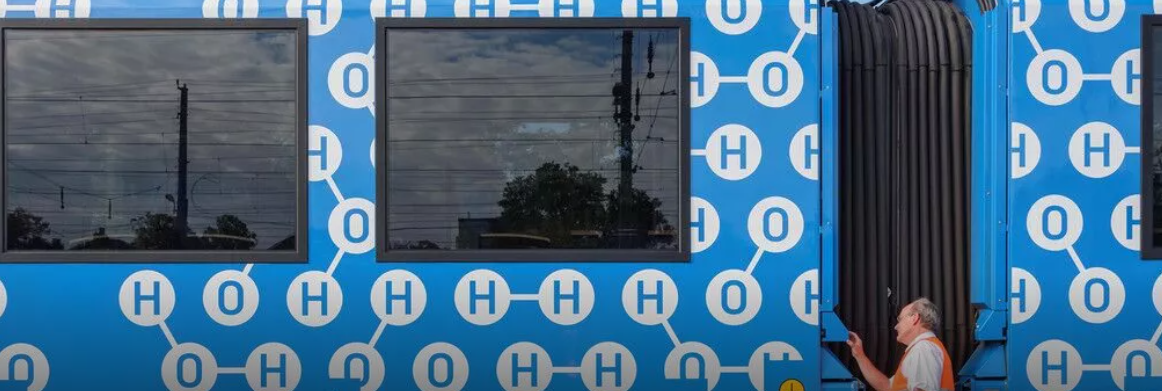
The future of sustainable and eco-friendly transportation took a significant leap forward as the first hydrogen-powered train embarked on its test period this week.
This groundbreaking initiative carried out on the Canfranc line, serves as a pilot project led by CAF (Construcción y Auxiliar de Ferrocarriles) in consortium with Renfe, Adif, DLR, Toyota, CNH2, IP, and Stemmann-Technik.
Transport Minister Raquel Sánchez praised the project’s progress, emphasizing how it “combines the energy of hydrogen cells and batteries for innovative and sustainable mobility.” The introduction of the hydrogen-powered train represents the central government’s commitment to fostering a transportation system capable of meeting present and future challenges.
According to sources at CAF, this train serves as the hydrogen prototype for the FCH2Rail project, with new information set to be unveiled as the project reaches new milestones.
Renfe, Spain’s national railway company, announced that the demonstrator train has entered the testing phase on the Railway Network of General Interest, following authorization from Adif, the infrastructure management entity. The train, originally a Renfe commuter unit, was transformed by CAF into a two-mode train equipped with a hydrogen fuel cell. Throughout its test runs, the train operated in electric mode on electrified sections and switched to hybrid mode, combining hydrogen cells and batteries, in non-electrified sections.
Having successfully completed static tests at the CAF Zaragoza plant, the consortium is now taking the project to an external track, underlining its dedication to the initiative. The objective is to evaluate the competitiveness of the new two-mode hybrid propulsion solution against the existing diesel traction commonly used on many railway lines.
The FCH2Rail project, with a total budget of 14 million euros, receives significant funding of ten million euros from the Clean Hydrogen Partnership, an agency of the European Commission dedicated to promoting hydrogen development. Iberdrola, a leading Spanish energy company, also participates as a supplier of green hydrogen, contributing to the project’s overall success.
The introduction of hydrogen-powered trains marks a crucial milestone in the global pursuit of sustainable transportation. By harnessing the potential of hydrogen cells and batteries, these trains offer a clean and efficient alternative to traditional diesel-powered locomotives. The utilization of hydrogen not only reduces harmful emissions but also contributes to the diversification of energy sources, fostering energy independence and security.
Moreover, hydrogen-powered trains have the potential to transform railway systems worldwide. They can provide quiet and comfortable journeys while significantly reducing noise pollution along rail corridors. Additionally, the ability to operate on non-electrified sections expands rail connectivity to previously underserved areas, promoting economic development and accessibility.
The Canfranc line test serves as a testament to the collaborative efforts of multiple stakeholders, including government agencies, industry leaders, and research institutions. It showcases Spain’s commitment to driving innovation in sustainable transport and positioning itself as a global leader in hydrogen technology.
As the hydrogen train project progresses and undergoes further testing, it offers a glimpse into the future of railway transportation, where hydrogen-powered trains can revolutionize mobility by delivering efficient, environmentally friendly, and economically viable solutions.